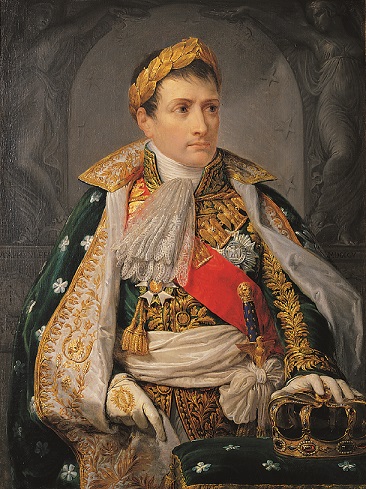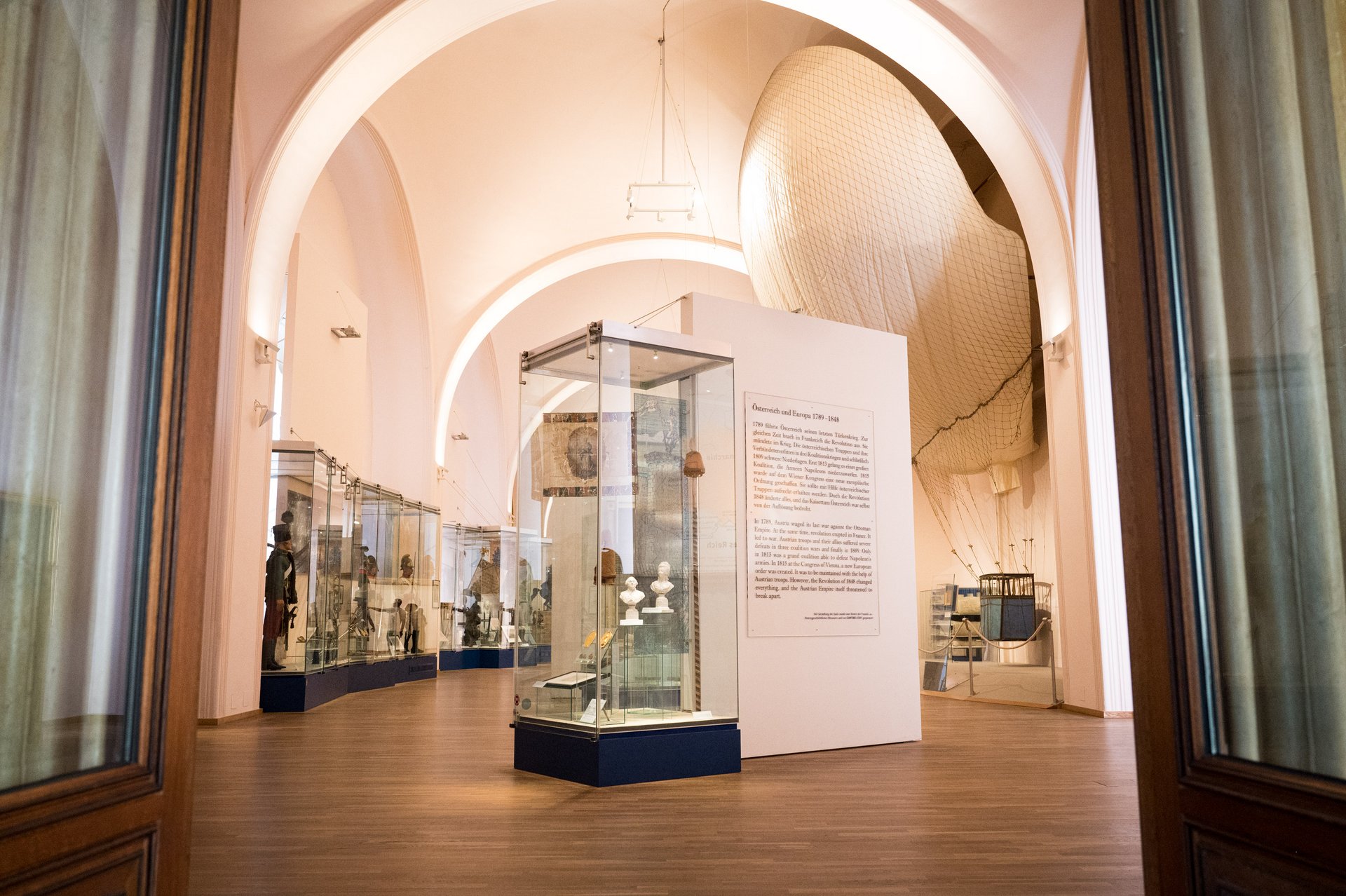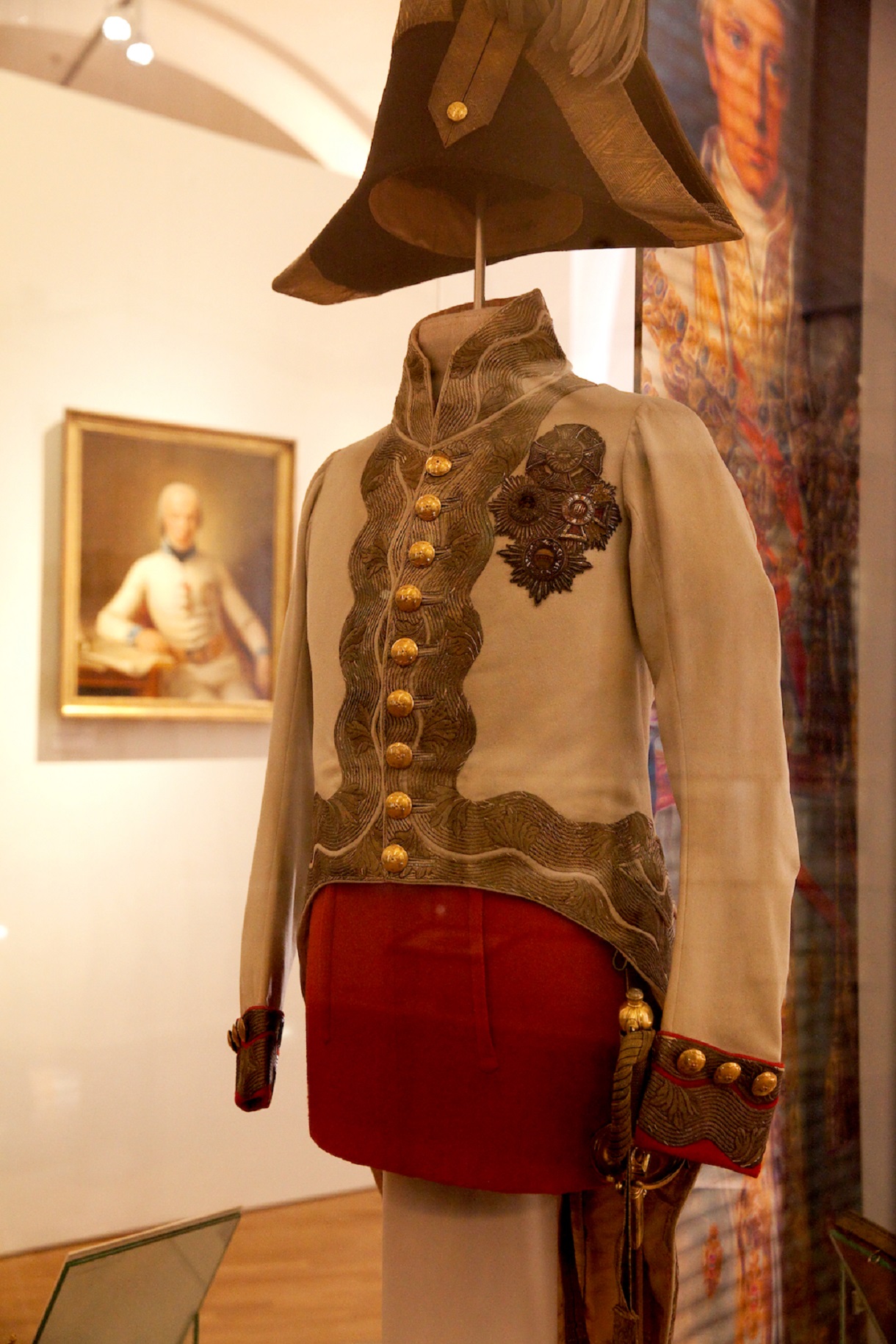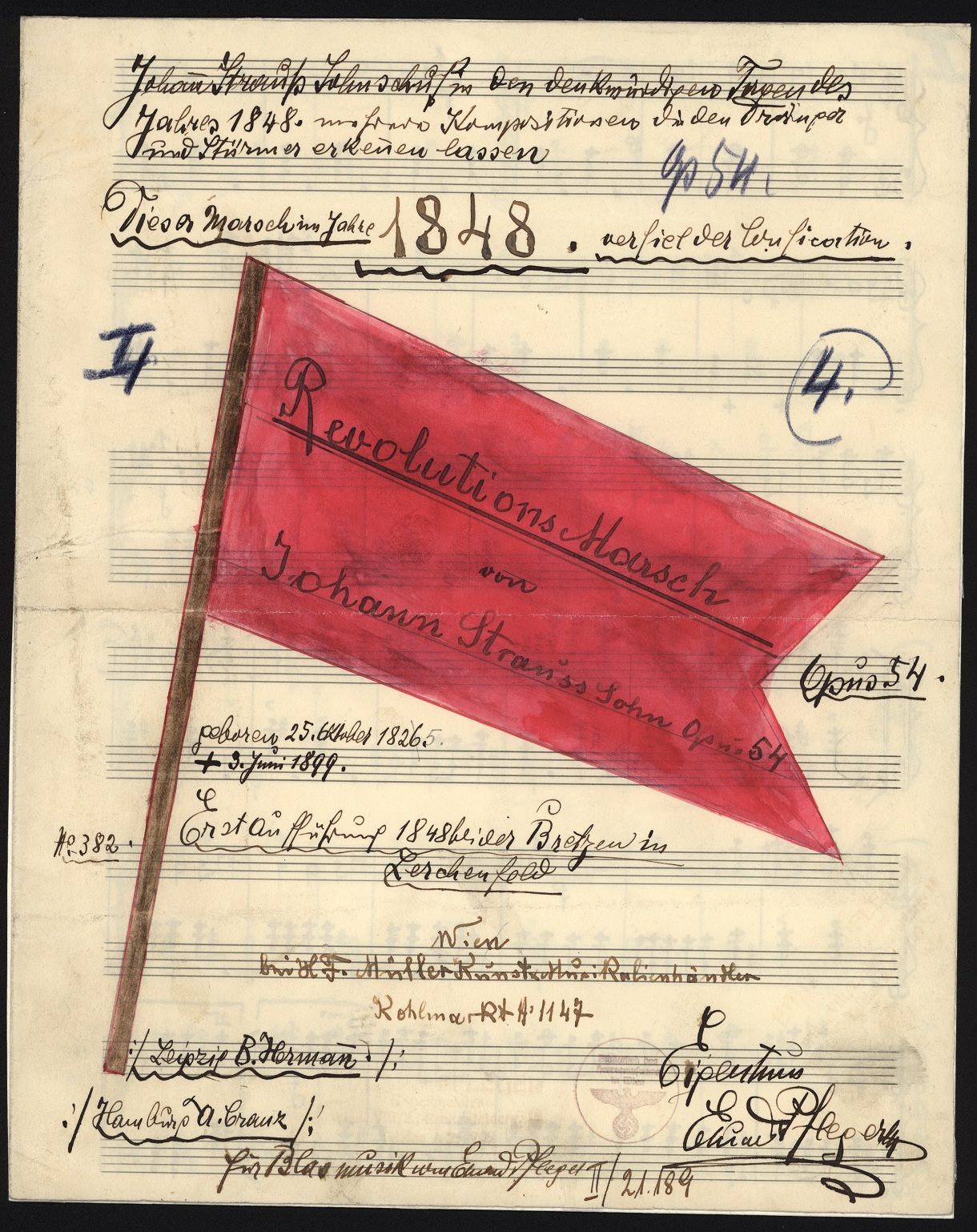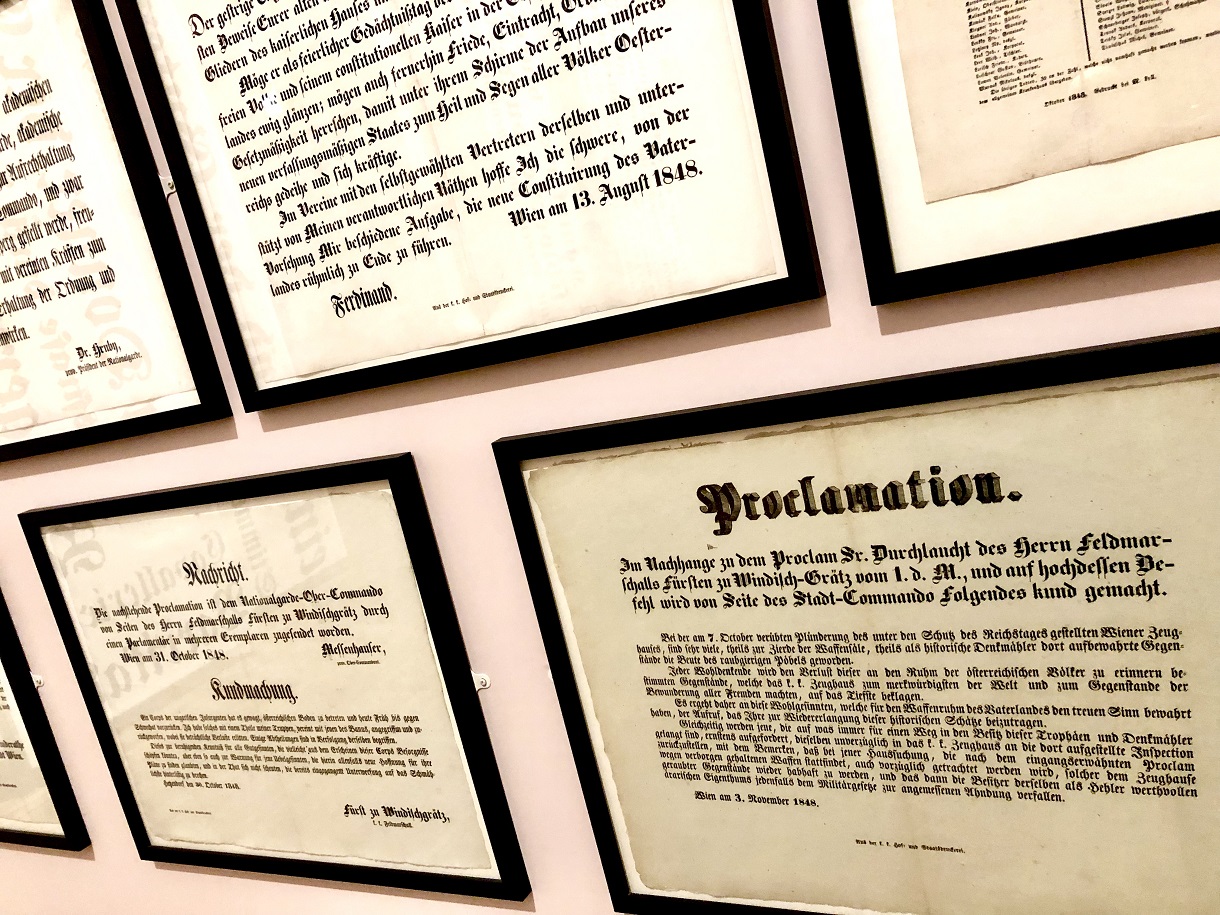Hall of Revolutions
From the Napoleonic Wars to the revolutions of 1848
Download: Hall of Revolutions
At the end of Joseph II's reign, the Habsburg Monarchy (together with Russia) was once again involved in a costly but unsuccessful war against the Ottoman Empire.
Meanwhile, an upheaval of historical significance was taking place in France:
On 14 July 1789, an angry mob stormed the Bastille in Paris, state prison and symbol of King Louis XVI's hated rule.
In April 1792, France declared war on the Habsburg Monarchy.
War against France
The Habsburg Monarchy joined forces with Prussia and Great Britain to form the First Coalition. The following war lasted until 1797 and ended in defeat for the allies.
The Habsburg Monarchy lost the Austrian Netherlands and Lombardy, but was given the region of Veneto in return. French general Napoleon Bonaparte (1769 - 1821) had become increasingly prominent in this war, while on the imperial side, Archduke Carl (1771 - 1847), a brother of Emperor Franz II/I, proved to be a particularly capable commander. He won a series of victories, including at Würzburg in 1796.
1799 saw the War of the Second of Coalition, which was mainly fought by the Habsburg Monarchy and Russia against France.
After several battles in Italy and Switzerland, Archduke Carl resigned his command. Under his brother Archduke Johann (1782 - 1859), an Austro-Bavarian army lost the decisive Battle of Hohenlinden on 3 December 1800 and the Peace of Lunéville ended the war.
Napoleon crowned himself Emperor of the French in 1804. He was working towards French hegemony in Europe, leading to a declaration of war by Austria and Russia in 1805.
The war ended after the Battle of Austerlitz with the Peace of Pressburg. Austria had to give Tyrol to Bavaria, an ally of France. In 1806, Emperor Franz II laid down the crown of the Holy Roman Empire and from then on ruled as Emperor Franz I of Austria.
In 1809, the Habsburg Monarchy hoped to break French hegemony in a new war by sparking a "national uprising" in German-speaking regions. National conscription was established in the form of Landwehr troops, an attempt to imitate the French model of "arming the people".
On 21/22 May 1809, Archduke Carl was victorious at the Battle of Aspern, Napoleon's first personal defeat, but lost the decisive battle of Deutsch-Wagram on 5/6 July 1809.
In the Peace of Schönbrunn, Austria again suffered heavy territorial losses and in 1812, it was forced to take part in Napoleon's campaign against Russia, which resulted in catastrophic losses. It was not until 1813 that the Habsburg Monarchy once again joined a coalition of Russians, Prussians, Swedes and British against Napoleon.
Napoleon was decisively defeated between 16 and 19 October 1813 in the Battle of Leipzig. The Allies entered Paris in late March 1814. Napoleon was forced to give up the throne and was exiled to the island of Elba.
Revolutions in Europe
The Congress of Vienna
The Congress of Vienna took place between November 1814 and June 1815 and served to reorganise Europe.
Napoleon's restoration attempt ended with his final defeat at the Battle of Waterloo on 18 June 1815 and his second exile.
The Second Treaty of Paris was signed on 20 November 1815, ending the Napoleonic Wars.
Just a few years after the Congress of Vienna, new revolutionary movements caused concern in many European monarchies. They were triggered by enormous social and national problems. For decades, Austria acted as "European policeman", suppressing liberal movements within its own empire.
The Austrian Biedermeier period was very violent as the Habsburg Monarchy led several military interventions to suppress revolutionary movements. After the death of Emperor Franz I in 1835, the problems intensified under the reign of his less gifted son Emperor Ferdinand I (1793 - 1875).
Revolutions
Revolution in the Habsburg Monarchy began on 13 March 1848.
In Prague, the revolutionary movement was suppressed by the military. In Vienna, the insurgents drove out all Habsburg troops from the city. It was not until October that the imperial capital was recaptured with considerable military effort. Field Marshal Alfred zu Windisch-Graetz (1787 - 1862) and the Banus of Croatia, Field Marshal Lieutenant Joseph Jelačić von Bužim (1801 - 1859), played a major part in this campaign.
In Hungary and Italy, the future of Habsburg rule remained uncertain for some time longer.

